How Stalin Met the Armenian Titan
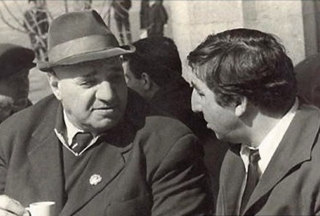
German weightlifter Josef Manger set a world record at Berlin Olympic Games in 1936. Germany was rejoicing.
Adolf Hitler announces, that this is nothing but a proof of being a higher Aryan race, and, not accidentally, the strongest person of the world represents exactly that nation. The Soviet Union wasn’t participating in the games. However, this didn’t hinder Stalin to feel insulted and defeated. Wasn’t there anyone in the whole Soviet Union, who would be able to surpass that German and prove the world, were lived the strongest people? To Stalin’s question representatives for the field reported, there is one, and he lives in Armenia. It was USSR triple champion, weightlifter Sergo Hambardzumyan.
The newly appointed secretary of the Central Committee of the Communist Party of Armenia left for the Kremlin. Stalin approached him and asked, “Where is Sergo Hambardzumyan? I need him.”
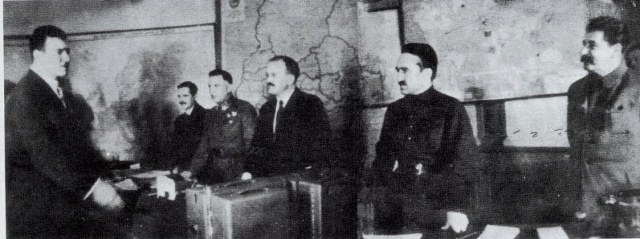
The secretary unaware of the situation, had to do nothing but promising, that they will find him in 24 hours and will take him to the leader. Really, where was Sergo?
There is a legend, which seems quite reliable. According to it, when friends told Sergo of Aghasi Khanjyan’s suicide in July 1936, he jumped and exclaimed, “I don’t believe it. He was killed.” These words were enough that everybody considered him a lost person. Realizing what threatens him and his relatives, Sergo immediately left for Moscow.
He had been living there for three months, trying to maximally keep apart from suspicious glances. But one day, while having supper in a cafeteria, the chef in terror ran to him and said a black car came and people asked for Sergo. Then appeared men in black and ordered to follow them. “Comrade Stalin is asking for you.” “How should I go to Stalin,” Sergo asked showing his worn out, ragged clothes. A few minutes later a new suit was ordered, shoes and shirt were bought for him. The car was rushing to the Kremlin.
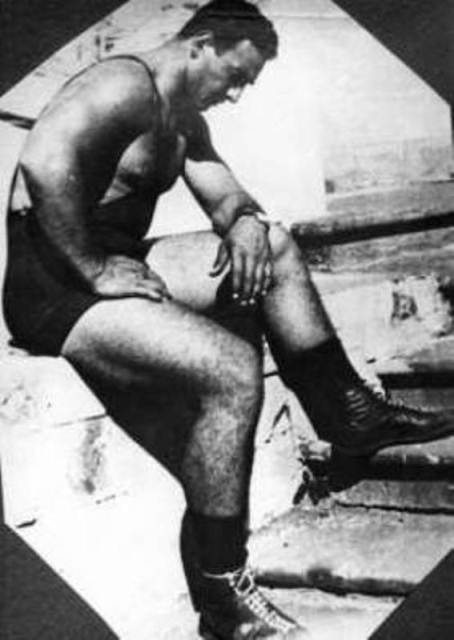
In the end of an immense room was sitting Stalin. He rose, and Sergo quickened his steps to approach him. At that moment father of the nations chuckled, “Slow down, boy, you’ll crack the floor.”
When they sat, Stalin asked, “Mr Hambardzumyan, what do you need to win that fascist Manger?” With deep sincerity Sergo replied, “Food, Comrade Stalin.”
Next morning quite a different life starts for him. With his new trainer Lithuanian Yan Sparre departs to Yerevan with Sergo Hambardzumyan. Respectable pension for those times was appointed for the athlete.
Besides, he had a so-called “open account” in Yerevan. This meant, whenever he entered for purchase or other needs, state would cover the expenses. However, privileges weren’t more, than the tension, which became athlete’s inseparable part of his routine. Everything was done to do the impossible. And the historical moment came.
On New Year’s Eve, 30 December 1938, the small hall of Armenian Philharmonic was overcrowded. Those, who failed to enter the building, were standing in front of it, traffic of Abovyan and neighboring streets was paralyzed. Sergo appears on the arena and starts his speech. Dead silence in the hall. Then, walls of the building shake from applauses and exclamations. People were hugging one another and crying, victorious “hurrah!” was heard everywhere. The promise was kept.
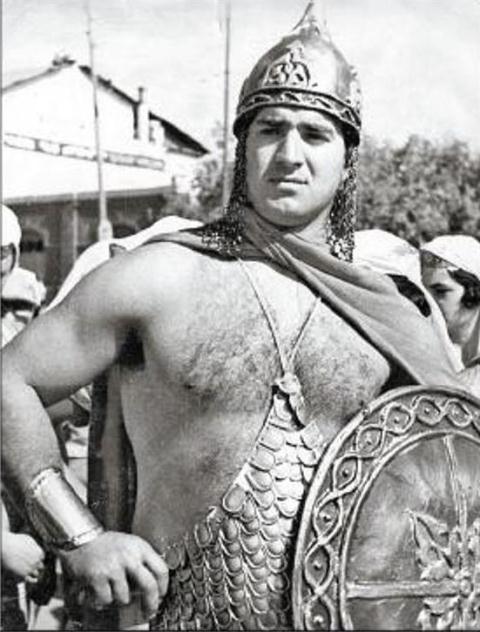
Sergo Hambardzumyan set a world record in classic triathlon: 433,5kg, exceeding German Manger’s result by 8,5kg. The crowd took the hero till the hotel he was staying at.
Next day, “Krasniy sport” magazine heralded, “Sergo Hambardzumyan kept his promise given to Comrade Stalin. The record of bourgeois athlete is exceeded. The strongest person in the world is our Sergo.” All the newspapers wrote on this, even German ones. Sergo’s sidereal hour has come. And he was just 28.
Stalin was satisfied. A brilliant gift was given for the holiday. And he invited the Armenian hero to Moscow. It was a glorious and unprecedented reception. 900 prominent and well-known people got invitation to the event. Sergo Hambardzumyan was among the first (fifth), to be granted honorable medal.
Then Stalin offered the day’s hero to choose one of precious gifts: piano or Master Voices gramophone. Sergo chose the last one. This wasn’t the single gift. Key to luxurious “M-1” car were handed to him, as well as a nominal gold watch with a brilliant stone. But for Sergo the most precious was the photo, where the giant athlete was standing before the country’s leaders. Then he enlarged the photo and hang on the wall. Many Yerevan citizens were visiting him to see the Leader and Sergo together.
Feast followed the Kremlin reception. And here Stalin had another surprise, proposing Sergo to become the day’s tamada. The legendary athlete should be served the best, as he easily overcame that test, so brilliantly, that the country’s head couldn’t restrain his astonishment. “Look, I thought Hambardzumyan was a great athlete, but turns out he is an excellent tamada as well,” exclaimed Stalin. The feast lasted till dawn. When Sergo came to the hotel in the morning, he said to his wife Tamara, “Toma, now I can die. I was tamada at the same table with Stalin.”
No need to die. These were days to live. Yerevan welcomed Sergo as a national hero. And when in 1939 at the centennial of creation of “Sasountsi Davit” epos, there was only one candidate to impersonate the titan-him.
Years went by. There was war, there was peace. Sergo bore both all hardships with others and joy of victory, and people were still admiring his superhuman courage. This continued till summer of 1947 when Stalin decided to hold athletes’ union march in Red Square.
Before the march Anastas Mikoyan invited Sergo to his office and asked:
“Can you set another record just on the square?” Mikoyan’s question wasn’t presupposing any negative reply, and Sergo had to give another promise to Comrade Stalin.
A perfect speech has been prepared for the Moscow event. In mid-march a titan appeared in the center of the Square, bearing on his shoulders a log, on which two immense balls were attached. When he stood up in the center of the Square, the balls opened and 22 footballers came out. That giant was Sergo, and his act was out of human capabilities and imagination. Stalin was smiling and applauding from distance. But happened the unforgivable. Sergo failed to keep the promised record.
The fact was regrettable, but to which extent, Sergo felt only after arriving in Yerevan.
In counted days he was deprived of all privileges, pension, and even salary. The favorite of the authorities wasn’t one at all. When the situation became inextricable, desperate athlete started to sell the photos, which he was keeping like a relic, and which were his pride. But this wasn’t an exit.
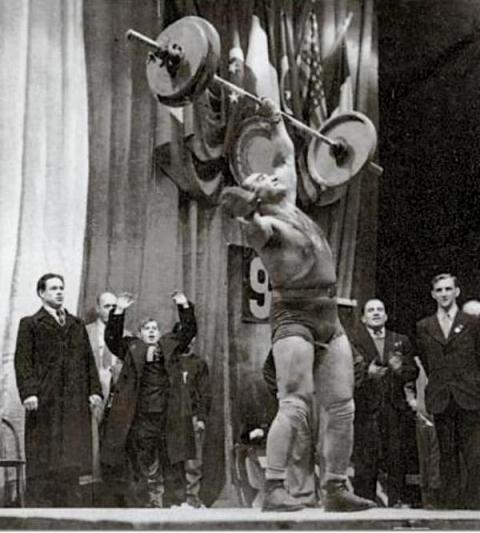
Exactly 10 years later 30 December 1948 after his glorious victory, Sergo Hambardzumyan very bitterly writes a letter to Grigor Harutyunyan, secretary of the Central Committee, where he was introducing his miserable condition, then noticing with regret: “it’s not once, that I felt like a hunting dog, bad owner of which feeds only on the days of hunting.” Yes, his lovely Master, whom Sergo was adoring and appreciating, was no more memorizing world’s strongest person, only for one thing-he once dared to disappoint the Master.
The most regrettable is the end of the story. During one of the speeches Sergo felt badly. Ambulance took him to the hospital. Doctors diagnosed a microstroke. He couldn’t do sport any more. But he needed to live.
I memorize what my father was telling: Sergo Hambardzumyan was walking from village to village, delivering speeches in clubs, where he was demonstrating amazing tricks, bending iron rods, pulling out nails with teeth, and by that earning his living. After some time he was a taxi driver, then he opened a barbecue place, next to “Masis” restaurant. People often were coming there not only for tasty dishes, but too see the living legend, whom people appreciated and loved devotedly. So, until the end of his life he admired the most sincere and clean-fingered love of people, who have always venerated him and pronounced the name of the strongest person in the world with pride—Sergo Hambardzumyan.
By Hovik Charkhchyan

























